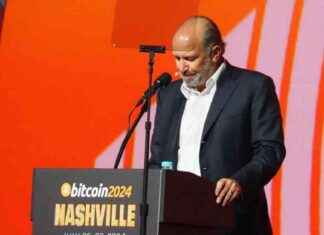MADRID, 11 Nov. (EUROPA PRESS) –
A Tunisian court issued a travel ban on Friday against the leader of the Islamist Ennahda party and president of the dissolved Parliament, Rachid Ghanuchi, as part of an investigation against him for alleged corruption.
The investigating judge in charge of the ‘Instalingo’ case, Rochdi ben Romdhane, has ordered that Ghanuchi cannot leave the country in the midst of the investigations, although he has allowed him to remain free while the process continues, according to what the Radio station reported. Mosaic.
Ghanuchi had stated after the decision on his remaining free that the judge had found no evidence of his or Ennahda’s involvement in a corruption case.
Likewise, he denounced that the current situation in the country, presided over by Kais Saied, “is worse” than during the Zine el Abidine ben Ali regime -overthrown in 2011 in the midst of a popular uprising during the ‘Arab Spring’–. “Fortunately, justice is independent,” he said.
The ‘Instalingo’ case revolves around a specialized company dedicated to the generation of content and derives from October 2021, when the authorities arrested several of its workers for “offenses against the president” and “plot against state security”.
Since then, journalists, bloggers and politicians, including Ghanuchi, his daughter and former Interior Ministry spokesman Mohamed Alí Larui have been summoned to testify. Ennahda has denounced a politicization of the case, as well as others opened in recent months against senior party officials.
In this context, a Tunisian court in July ordered the freezing of the bank accounts of ten people, including Ghanuchi and former Prime Minister Hamadi Yebali in connection with an investigation of alleged corruption involving the Nama Tunes charity.
Tunisia is mired in a serious political crisis due to Saied’s decision in July 2021 to dissolve the government and suspend Parliament, later dissolved, amid opposition complaints about an authoritarian drift by the president.
The country is preparing to hold early legislative elections in December that will be boycotted by the majority of the opposition, which had already boycotted the constitutional referendum in July, which strengthened the powers of the president and took weight away from Parliament.






